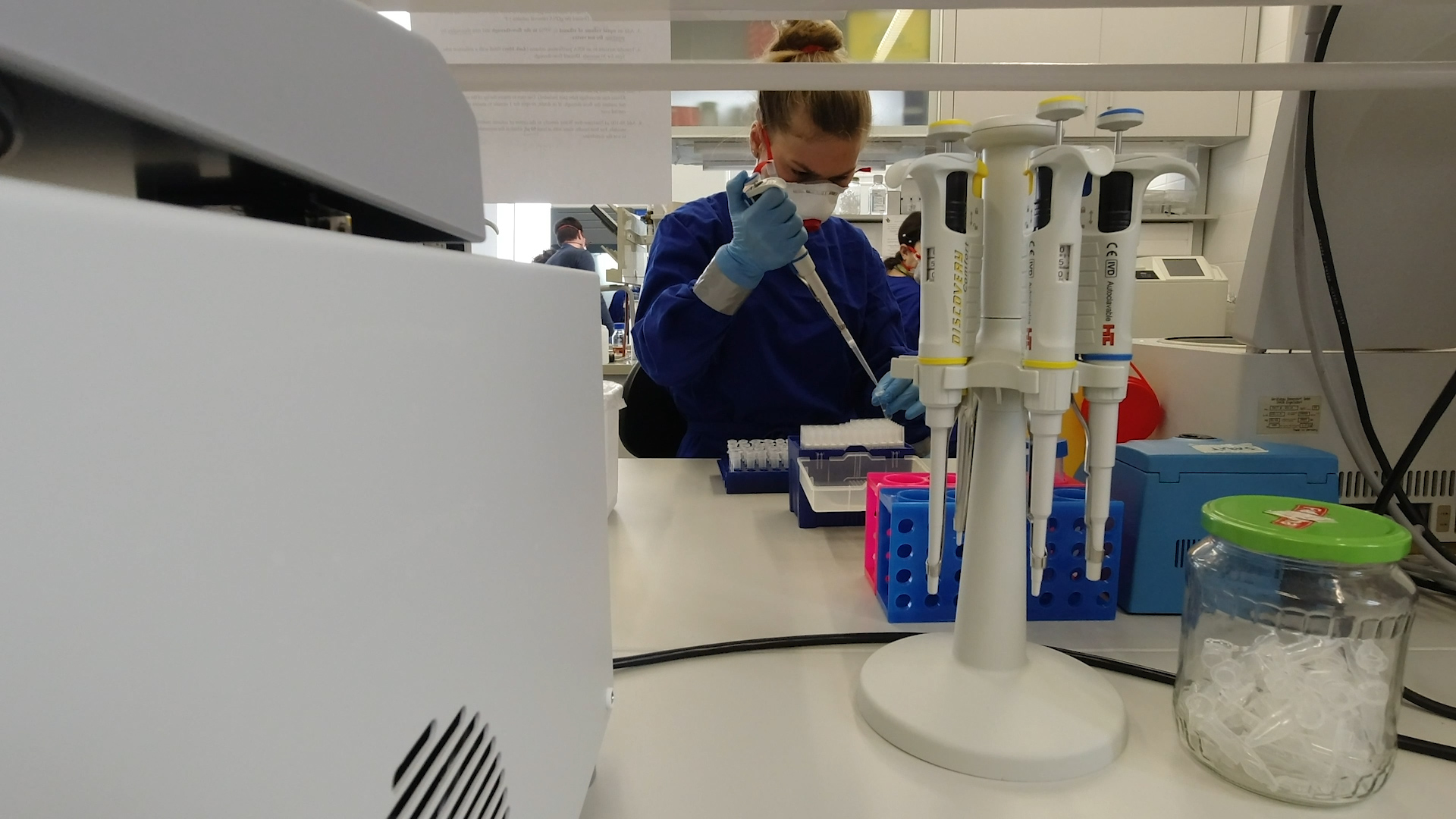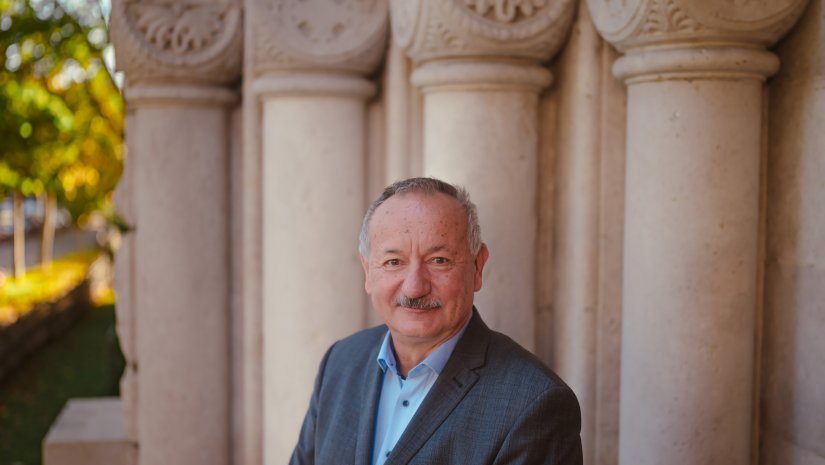The Szentágothai Research Centre of the University of Pécs helps in the fight against coronavirus in an international virology project. URSAPHARM Arzneimittel and CEBINA are conducting a joint clinical research about azelastine hydrochloride - more commonly known as antihistamine - as a potential therapeutic drug against COVID19. Colleagues of the Szentágothai Research Centre are helping with their work.
During the COVID19 epidemic, many pharmaceutical corporations have been looking at their already developed drugs with antiviral properties from a different point of view, in order to use them against the SARS-CoV-2 virus. Meanwhile, they are also involved in intensive research and development in order to find new anti-COVID19 therapies.
The aim of the two biotechnological companies’ – the German URSAPHARM Arzneimittel Gmbh and the Austrian CEBINA Gmbh - joined clinical research is to determine the potential effects of azelastine hydrochloride against the SARS-CoV-2 infection in the patient’s body. Azelastine has been utilized in anti-allergy therapies for many years.

A researcher of the University of Vienna, Prof. Dr. Robert Konrat has researched the potential antiviral effects of known drugs using a new software he developed. Based on this research, CEBINA GmbH chose numerous known drugs for testing. The laboratory tests were conducted at the Virological National Laboratory (University of Pécs) led by Prof. Dr. Ferenc Jakab.
Azelastine-hydrochloride can become a potential medicine against SARS-CoV-2 due to its strong antiviral properties, which the researchers of Pécs have detected in human nasal tissue models.
Clinical testing in Germany has started in February to determine whether a nasal spray containing azelastine can repel the virus from the nasal mucous membrane and stop it from attaching and reproducing in the early stages of infection, thus preventing the development of the COVID19 virus or at least positively affecting its course and severity. Simultaneously with the foreign clinical tests, the virologists and pharmacologists of Pécs and CEBINA began planning the clinical testing in Hungary.
Austrian, German and Hungarian researchers theorize that
if the clinical tests yield positive results that could lead to a breakthrough in monitoring the spreading of the virus’ and it could help repress the current outbreak.
Read more about the beginning of the vaccine development project with Cebina »






